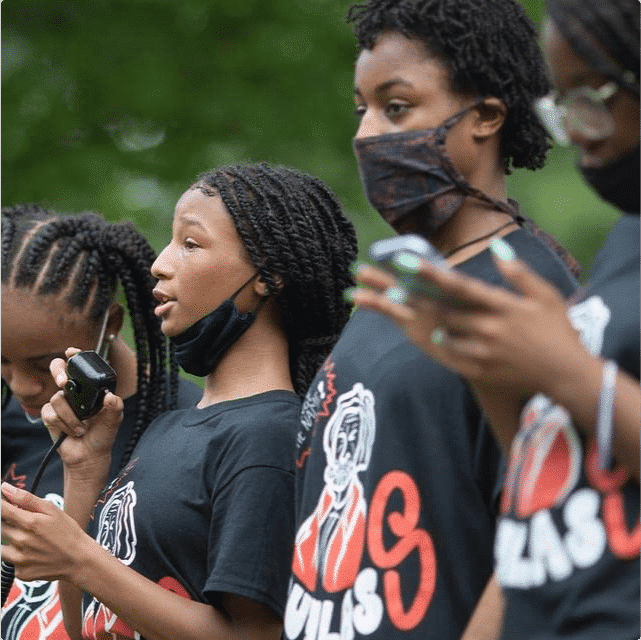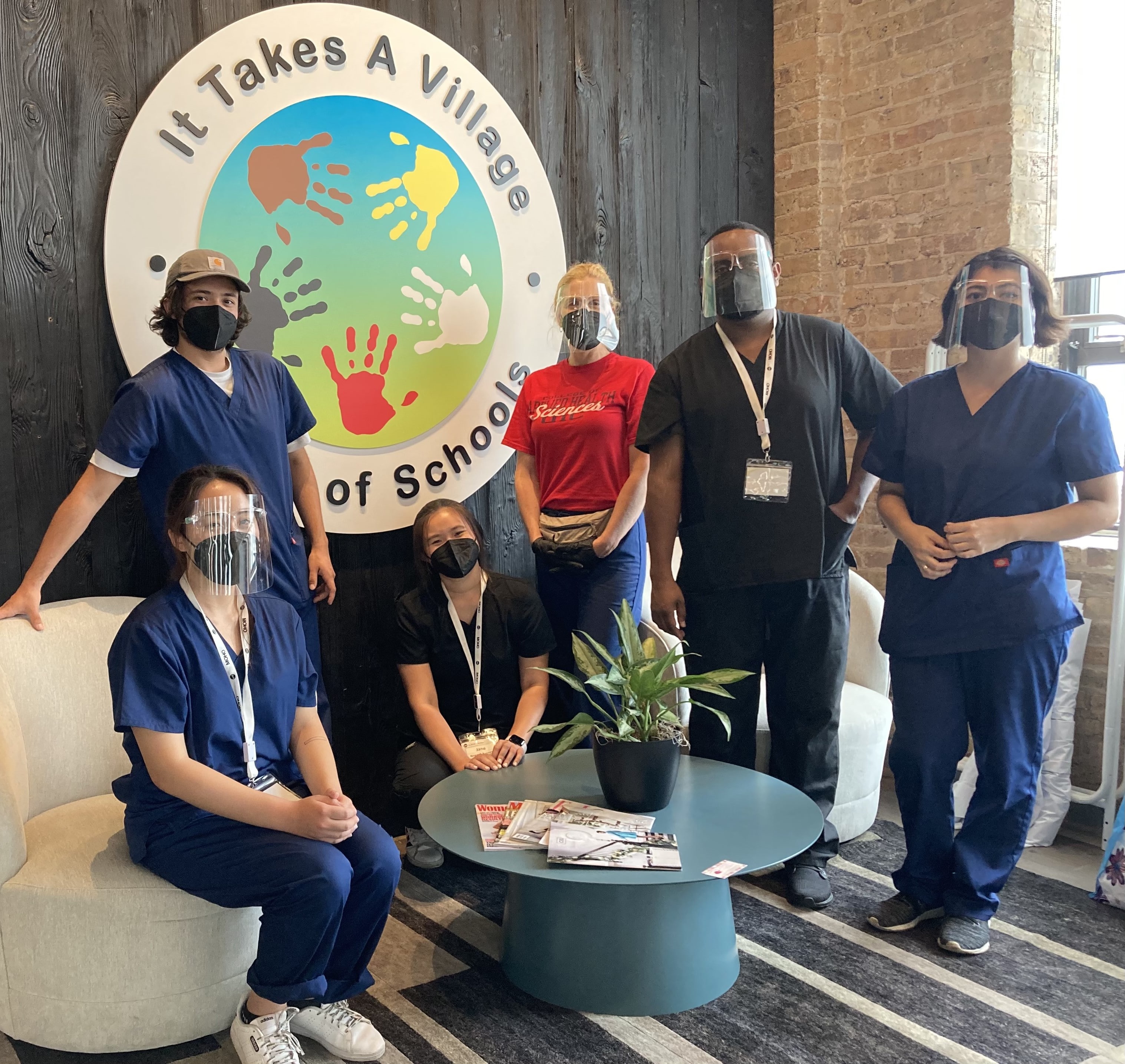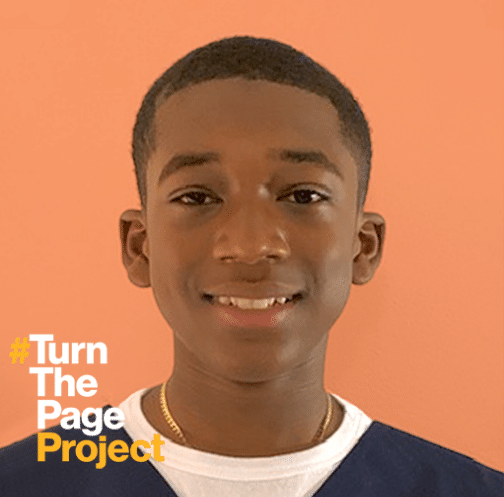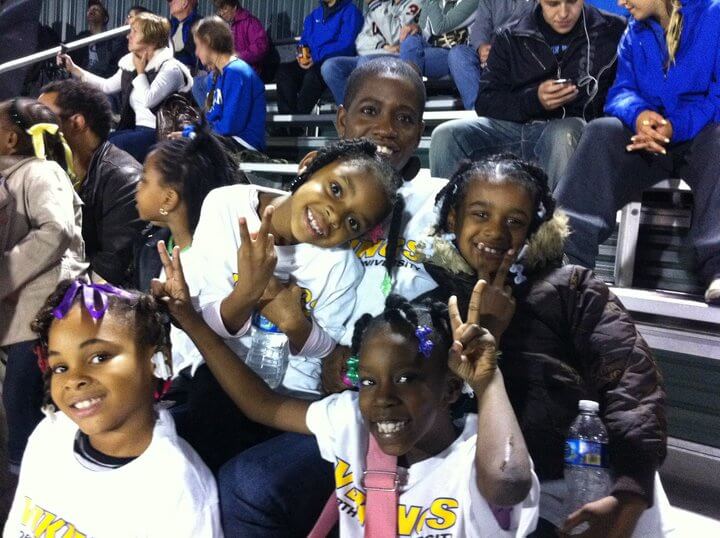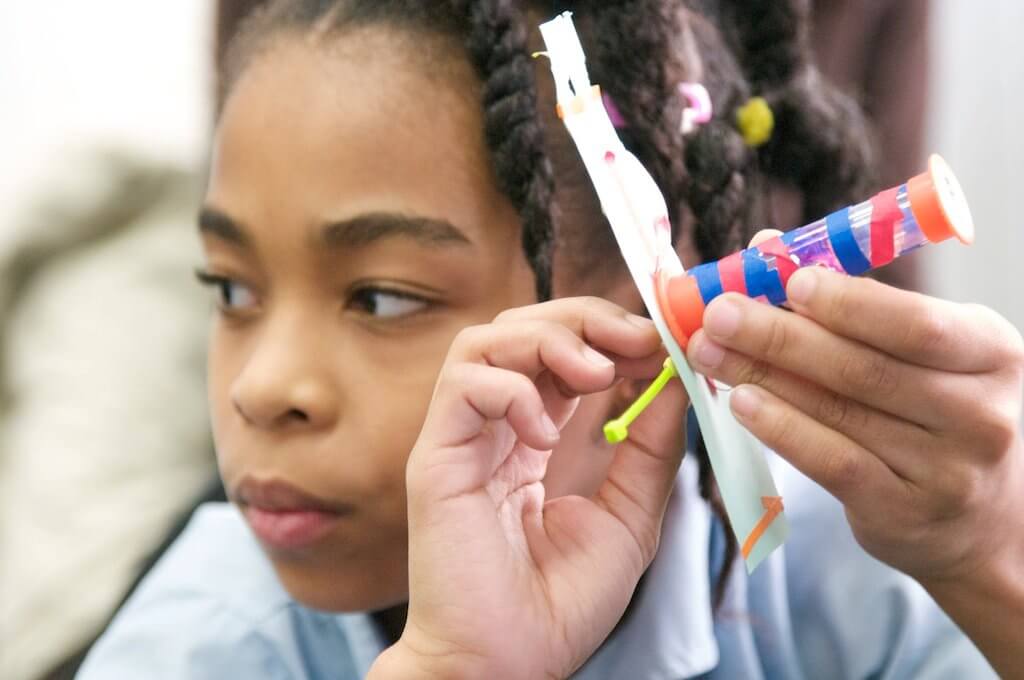Blog
Interview with Darrell & Makeya of the ITAV ECW Program
By: Tara Shedor, Director of Communications
Learn More Learn More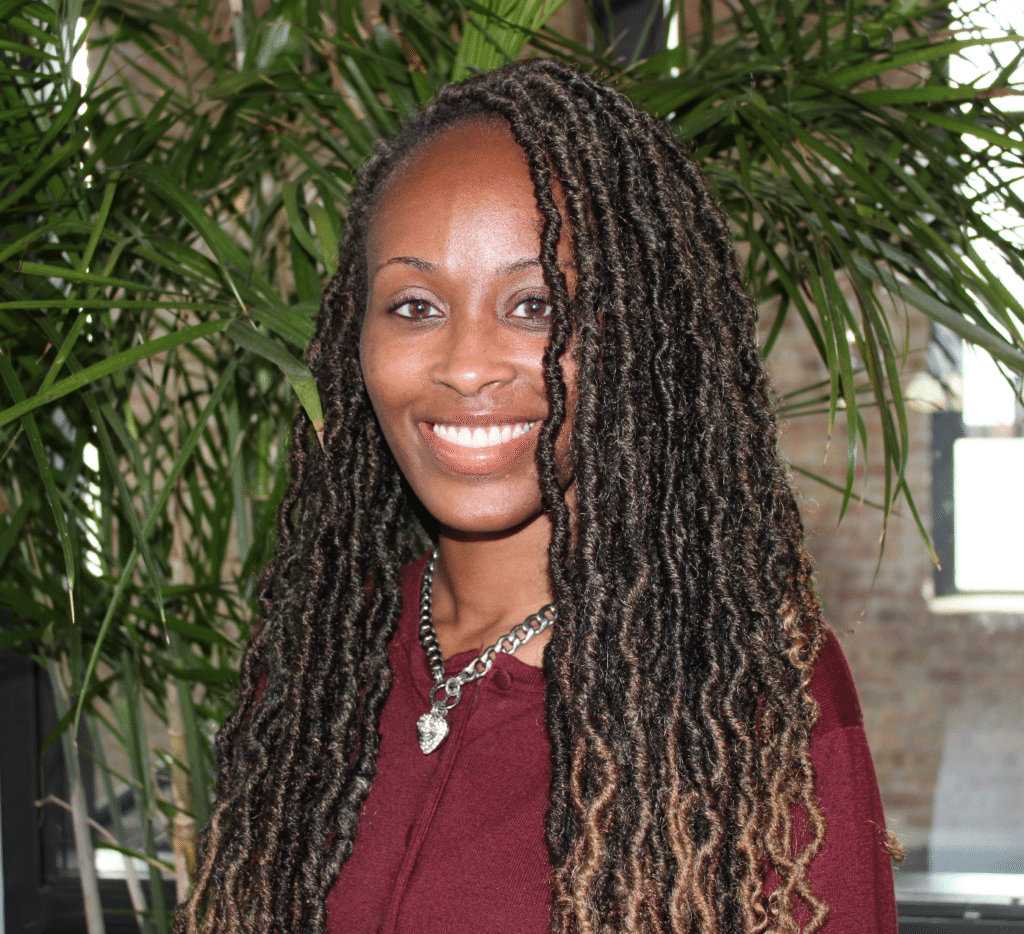
Education is a part of who I am and
will be a career that I’ll take to the end.
Darrell: My career in early childhood education actually started when I was in high school and was a part of a Trio program called Upward Bound which put kids on a path to higher education. We would go to Governor State University in University Park, Illinois, take summer classes, go on college tours, and work part time. A part of the work you could do, like an apprenticeship, was working in the early child care center. So I used to do art with the kids, and that was my very first experience working with pre-K students.
Then I went to college and studied everything under the sun except early childhood education. I studied communications, theater, and then finally settled in and graduated with a degree in public health. The second I graduated, one of my friends who worked at the Children’s Learning Center out of DeKalb was like, “You teach kids, Darrell,” (I taught kids dance) “I think you’ll be good with the kids, come to Children’s Learning Center.” I was just graduating from undergrad, looking for a place to work.
So I went to Children’s Learning Center and fell in love with it. I stayed there for a couple of years and started to gain early childhood education credentials alongside my degree. I was a toddler teacher, worked with two year olds, and sometimes the infant classroom. They made sure you got knowledge from zero to five while working in their center. I was an infant toddler teacher, and then I was then promoted to a pre-K teacher where I worked full time, and then I was promoted again to a site coordinator for the before and after school program. I started working with K through 12 years old, providing before and after school care for them, and then after leaving Children’s Learning Center, I became a teacher coach, which was a huge opportunity for me in education. I got to work more closely with teachers.
I started to train teachers on Creative Curriculum, how to assess and document children’s growth, and other strategies. I would do classroom observations using the class tool, which is nationally recognized and largely used in head start. I was always told by my directors that I had a knack with children and natural teaching practices. I was able to come alongside those teachers as a coach and pour into them the tricks and the teacher practices because honestly, there is a finesse to being a teacher.
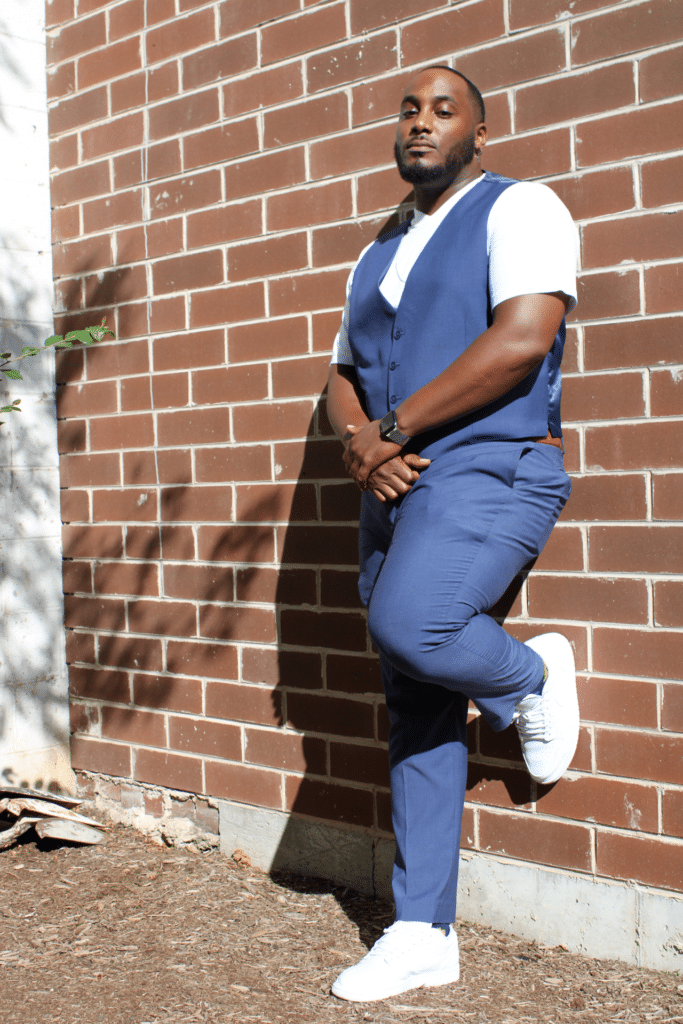
You can have all the teaching practices and the knowledge you want but there’s nothing like learning the finesse of being an educator.
You can see it in teachers. You can see those teachers that have it and those that don’t. So now that I’m putting youth on a career path in early education and an opportunity to see this as a career, I’m making sure that when I speak to them, I’m embedding those things about patience and how important self-care is as a teacher. Because let’s face it, early child care education is hard, hard, hard work, and a lot of teachers reach burnout. So those who actually have a passion for it and are trained by those who can teach them self-care practices, teach them patience, teach them how to understand developmental milestones of children, are much better prepared for success.
Great teachers also need to continue to gain professional development. So do myself and Ms. Kelly (Makeya), who’s a working example of since she’s in school right now as well as training up and coming teachers. So I think that’s a large part of our work since we are dealing with youth with very little work experience and things like that that we kind of take this opportunity not only to set them on a career path for early childhood development, but to encourage them and give those give them those little gems like, you know, this is how you know you get it done. This is how you don’t burn out.
This is how you take care of yourself
so that you can take care of others.
A lot of times teachers will point out the kid that’s not doing right. If you’re working with two or three or four year olds, they’re largely wanting to vie for a teacher’s attention. So if you constantly put all of the attention on the negative behavior, “Jacob sit down, Jacob, you need to do this, Jacob,” then all of the kids are probably going to mimic that child because he’s getting more attention. Instead you can say, “Oh, I love how Makeya is sitting nicely at the table. She’s waiting patiently. Oh my gosh, Makeya, you are doing so well today.” Then the kid who’s misbehaving nine times out of ten is going to straighten up and try to mimic Makeya. Unfortunately, this type of behavior immediately goes out the window if a teacher is tired or burned out. That’s just a little insight on the types of things we try to teach future teachers in our program.
Would you mind explaining more about how the ECW Program at ITAV offers wraparound services to help to prepare your young educators for things like self care?
Makeya: One of the greatest things about our program is that we do have a lot of young youth who are moms that enroll, and they come to us for expertise. “How can I become a better parent? How can I become a better educator? How can I become a professional?” We try to help them understand that you’re going to have barriers, so we help them identify those first. We do one on one meetings and let them know that this meeting is about you. Once they explain some of their barriers, for example, “I’m a single parent. I don’t have anyone to watch my child, but I do want to become an educator. I do want to build a career in early childhood.” One of our wraparound services that we offer include providing them with child care. We have internal schools and external schools that we have partnerships with that are more than happy to accept new children into their program.
We also have students who come in and say, “Hey, I definitely want to get on this path of early childhood, and I also want to get enrolled into college.” So we provide them with information on how to get resources for your schools that they may want to attend. We ask them things like: “OK, so tell me a little bit about yourself. Where do you stay? Where do you see yourself going to school? Do you see yourself going in person to school? Do you see yourself going online to school?” Everybody has different personalities. We look into scholarships for them as well. I work alongside them to help them fill out financial aid. They’ll say, “I don’t know where to start,” so that’s another support system that we offer them, alongside mental support. Some of our apprentices are at-risk youth, and their motivation is a little bit different from Darrell and myself when we were their age. A lot of them don’t have people in their corner to motivate them. So we try to get them to figure out ways to motivate themselves, which is another passion I have for working in this field and program.
Some of our students at our schools, our preschool babies, they’re at risk as well, and so I’ve brought some of those same practices from the classroom. So that’s another way that I’ve been able to support the wraparound services, just remembering that, you know, everyone needs one on one sometimes, right? One on one is what helps build you up as an individual. Like, OK, I know where I want to be, but how do I get there? What steps do I need to take to get there?
Everyone has a goal.
Everybody has a dream.
But pursuing that dream is another thing.
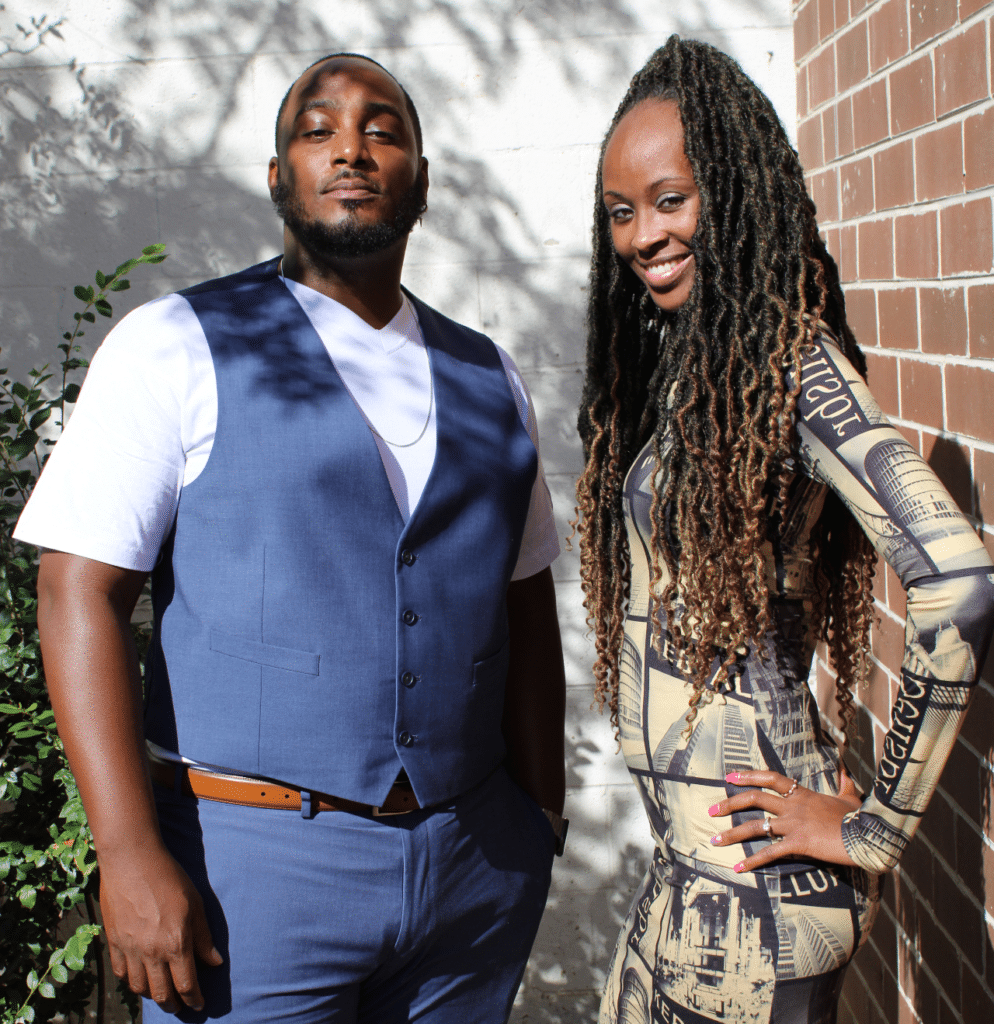
Makeya: What do you need to do first? You’ll hear me say that to our apprentices a lot. Tell me what you need to do first. And it sounds simple, right? Like, OK, you know you want to go to college. What do you need to do first? Those are some of the things that I offer our youth in our program.
Could you speak a little bit more about how you help instill young educators with some of the values that give them the finesse for being a powerful early educator?
Darrell: So the best teacher is experience, right? I personally had the pleasure of starting my early childhood career at a center that had a gold circle of quality from the National Association for the Education of Young Children. They provided high quality childcare, so I was able to learn by being a witness and being around high quality child care. And that same thing is for the youth we serve. A lot of our apprentices don’t go outside and see people they aspire to be or they don’t see opportunities, unfortunately.
One of our apprentices who has been greatly benefiting from being in our program had never experienced professional development, and before our program they said they had never even been in a meeting before. They never saw people that look like them in leadership positions. I always offer the opportunity to my apprentices to come down to ITAV headquarters so they can be surrounded by people that can inspire them. I know the importance of this firsthand because I am also a first generation college graduate. All of our youth that come into our program are invited to our professional development days like any of our other teachers. For professional development, again, continuing education is going to be key to always providing high quality childcare for children.
As many will notice, sometimes I come dressed up in a tie and my nice shoes, and they’ll also see me in my Jordans and maybe a jersey. I do that intentionally because I want them to know that I come from where they come from. This is the language I speak, but I also can do this as well. I never want to be too far detached from where I come from, because then I can’t communicate or I might miss the opportunity to be that inspiration for someone who can’t see beyond what’s outside their front yard. And so that is exactly how we continue to inspire youth that come into our program by, you know, breaking it down to career plans and further education plans to even just being a representation of what they can be.
Ms. Kelly (Makeya) constantly speaks about, you know, it’s hard for her. She’s a mother and in school and works full time. That’s her life. But she’s doing it. And so they’re able to see it can be done for those who are in our program that can relate.
Would you also say that that’s why there’s a real importance for diversity and representation in early child education as well, because these kids need to have relatable role models that they may not have in their own communities?
Absolutely. That work of the world, not even just early childhood education, has come a long way, but we still have a long way to go, right? There’s still people who don’t feel represented, or they may not even know that they’re not represented in certain spaces. Step one. Having early childhood educators in the classroom that look like the people that are serving and speak like the people that are serving is huge and not just for teachers, but speech pathologists, physical therapists, and occupational therapists. All of these career paths align with early childhood education, and a lot of times they’re outsourced.
If I have a class, and I’m on the south side of Chicago, in Englewood or in Roseland, and I notice a child that needs a speech pathologist. Is the speech pathologist that’s going to show up going to understand cultural references? Are they going to be able to connect with mom in a way that she doesn’t feel like something’s wrong with her child? You need to be able to say, “These are the things you can use. Actually, your child is on track if you just do x y z,” and be able to communicate that in their language. And this is what we can do to make sure your child continues to grow and be healthy. That is why it is so important that the teachers of our children represent them.
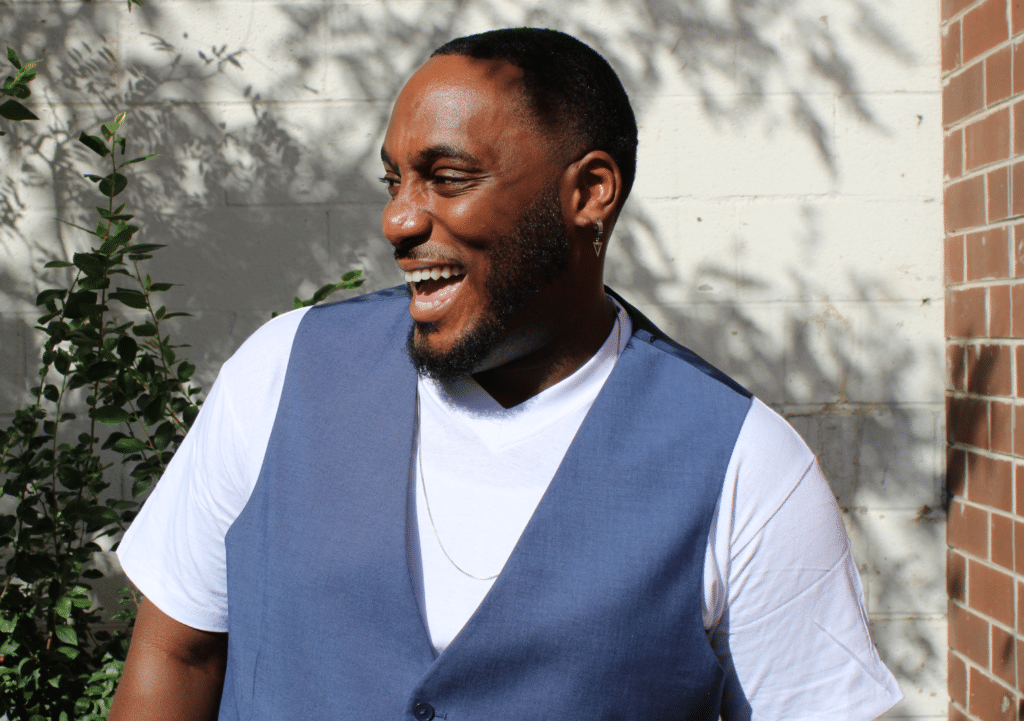
Diversity can be everywhere,
and it needs to be everywhere.
In these spaces especially where tender care, something so sensitive as your child’s development can be very tricky. Childcare is tricky. You’re watching someone’s baby. They’re like, My baby has a scratch. This is a big deal. You need to have a relationship with that family and say, you know, we were outside playing and he felt he was having a really good time, but we cleaned him up and make sure the family feels OK. And that’s even more so the same practice when providing early intervention or speech services or occupational therapy or a physical therapy when your child is developing, it’s a very sensitive topic. Being able to relate culturally and speak the language can make a world of difference.
What is your favorite thing about
working in early childhood education?
Makeya: My favorite thing about working in early childhood education piggybacks on what Darrell was just saying regarding being culturally relevant. That is something that I am really, really big on because I understand the importance of being relatable to students, to families, just to anyone that you work with intentionally. This is why I have enjoyed becoming an educator because I am able to use my creativity in how I can bring culture into the classroom and our program. This summer, we did a lot of cultural relevance in our program, down to our icebreakers, down to our activities that we presented down to our workshops. So just continuing to provide that cultural relevance to our students, whether they are preschool babies, toddlers, youth, whoever, bringing them to the education field is something that I really enjoy the most because it allows me to be creative in an important way.
Darrell: What I enjoy most about working in early childhood education is having the opportunity to shape our future leaders of tomorrow. Our babies are the future presidents and the future mayors and the future leaders of the world. So it’s a very powerful job. I think building those authentic relationships with kids is my favorite part, knowing that a piece of me is going to stick with them forever. Everyone remembers a teacher. It’s one teacher in everyone’s life that they will never forget, right?
That’s because the work teachers do with children is so huge.
Building those relationships with kids that really stay with them for a lifetime is my favorite part. I’m a mushy person. So that and knowing that they’re going to take that piece of me with them into the world, that could be our future. Like I said, President, and to know I’ve had a piece of that, that’s my favorite part.
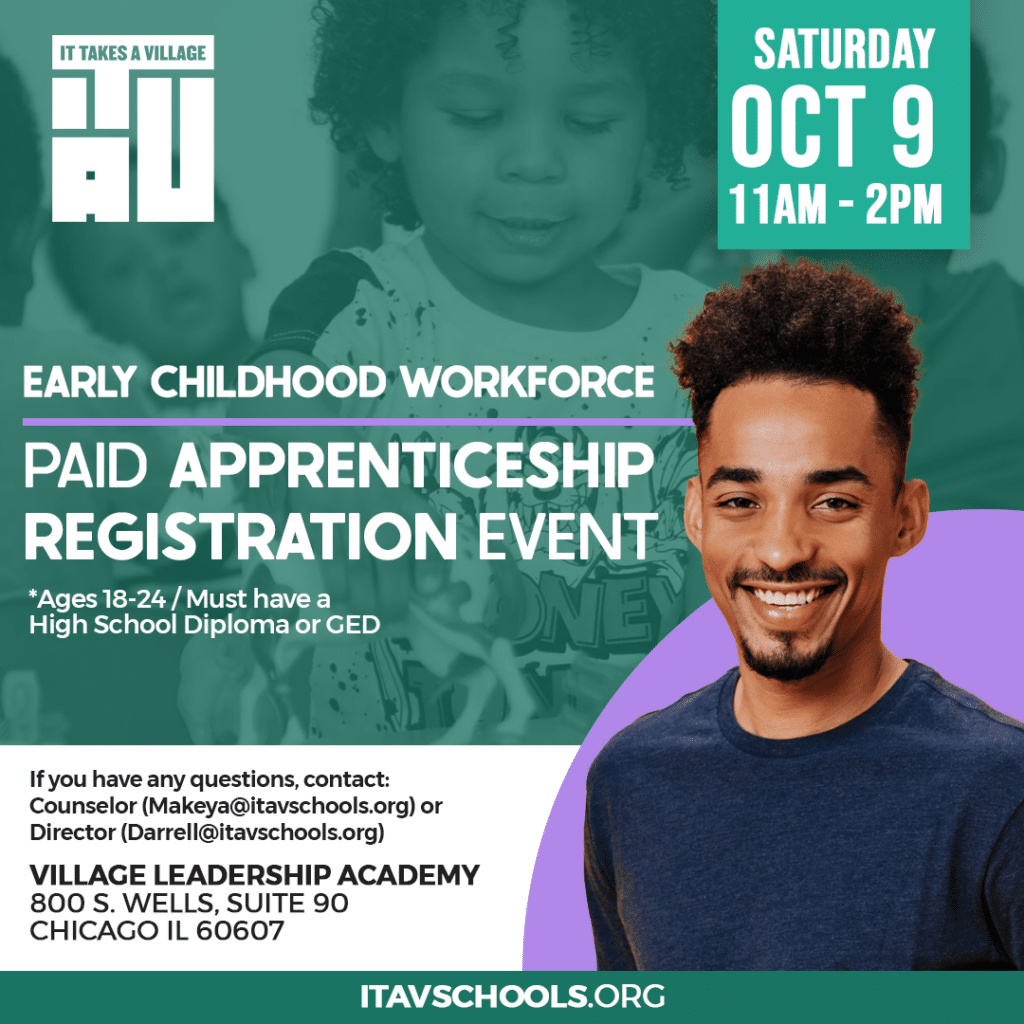
Learn More
Darrell and Makeya are currently enrolling for the next cohort of ECW program participants, ages 16 to 24. Interested in learning more about their program? Drop a note here and they will reach out with more information.
